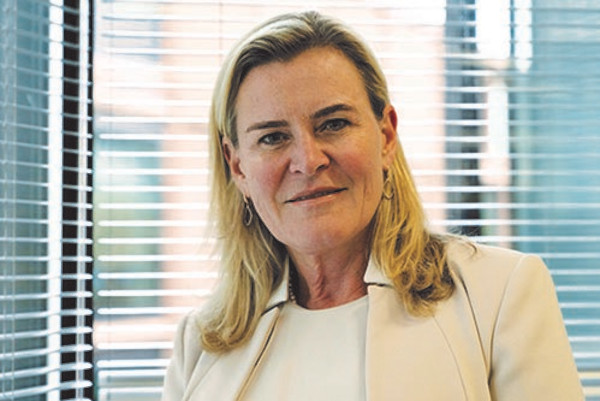

“If a fund is free to take all your money and invest it into the markets as it pleases, should there be some buffer that underpins these funds so that if they dive, the investors do not lose all their money?”
These questions are at the front of the mind for Ms Melis at the moment.
This is because one of the tasks in her in-tray involves three investment funds, in the UK and abroad, which have recently run into trouble.
Ms Melis says: “People will have lost money in these funds. A lot of that has to do with the way the regulations are constructed, the way funds are marketed to people, which quite frankly I thought the regulations had sorted out.”
The banking crisis
Ms Melis points to changes made in the banking sector following the 2008 financial crisis as an example of how rules were tightened.
In 2007 the mortgage market collapsed as a result of banks lending money to people who could not afford to pay their mortgage. This set in motion a chain of events that caused the global banking crisis.
Banks needed to be bailed out, and hence new measures were introduced to prevent a similar crisis happening again.
Ms Melis warns: “I really do not think we will have a banking crisis again, but we could very well have an asset management crisis.”
Her words might be described by some as doom-mongering, but the very essence of Ms Melis’s job requires her to spot a looming crisis before it occurs.
In her role at Duff & Phelps, Ms Melis oversees a staff of 300, advising companies around the world on regulatory and compliance matters.
She has previously worked for regulators: the main UK regulator, in its former guise as the Financial Services Authority, and the Cayman Islands Monetary Authority.
The interconnection between funds and investors means a major issue with a fund could potentially have wider market-reaching consequences, Ms Melis says.
“If you think about it, you have a pension fund here that would be invested in some [other] fund – that fund might be invested in another fund.”
“And then, yours and my money might be in the same fund, and then someone else’s fund is in the same fund and they have invested in the same companies. We are very interconnected in how we are invested in global markets.”
The problem for advisers when trying to understand how good a fund is, Ms Melis says, is that even with due diligence it can be more of a challenge to spot systemic issues, particularly when it is an event that has not happened before.
“Individually, wealth managers will not know. They will invest people’s money in the best products they can, with the data they have.
“When it turns out that some of those have completely lost value, you have to start to wonder why that has happened and whether there has been a circumvention of rules. Are the rules good enough for that type of vehicle? Are the funds too big?
“Are they seeking riskier returns than they should by their share size?
“In fact, are the private closed-ended funds less risky than these really large funds seeking a return that is difficult to achieve in a normal conventional strategy?
“Is it because of a valuation issue or an oversight issue?”
The coming certification regime
And as if advisers did not already have enough to worry about, Ms Melis says another big issue on the minds for IFAs is the incoming Senior Managers and Certification Regime.
The new regime, which is intended to improve accountability, comes into force on December 9.
The rules will not just bring increased scrutiny around how advisers treat their clients.
It is coming at a time when the issue of how advisers are recommending clients transfer out of a defined benefit pension scheme has become a major concern for the regulator.
Ms Melis says: “Advisers are scared of getting burnt, particularly with the SMCR. You cannot leave the bad actions behind. They follow you.
“There are also some rules that hold senior managers at the entities responsible, so this will change the landscape. [There will be] more responsible conduct for perhaps promotion or doing better research into the entities they promote and put their people in.”
One of the key ways, according to Ms Melis, that advisers can protect themselves is by having a robust record-keeping system to prove they gave good advice and assessed suitability and objectives.
But she does warn that companies should embed cultural change where it is needed rather than waiting for the FCA to do it.
“There are lots of good players – you cannot go out there and say everybody is bad. I definitely believe in investment and free markets, but there are some tricky issues,” Ms Melis adds.
“I’ve been in regulation for almost 30 years. It’s always the same. A regulator without teeth does not change behaviour - sadly.”
Ima Jackson-Obot is deputy features editor of Financial Adviser and FTAdviser



